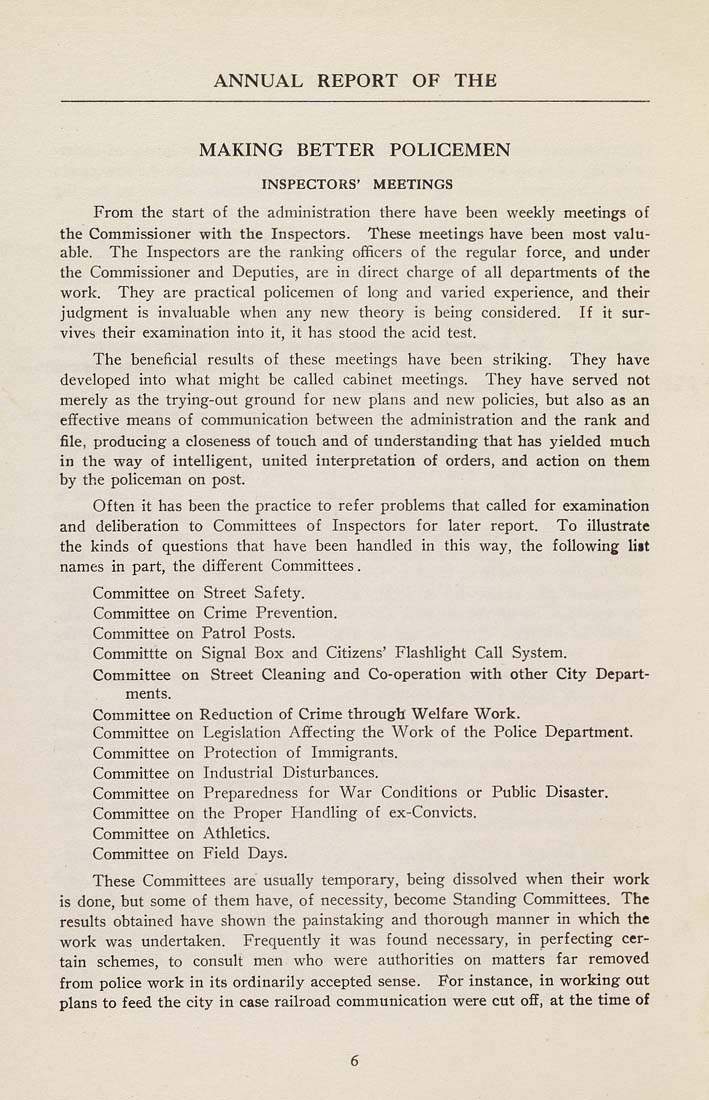ANNUAL REPORT OF THE
MAKING BETTER POLICEMEN
INSPECTORS' MEETINGS
From the start of the administration there have been weekly meetings of
the Commissioner with the Inspectors. These meetings have been most valu¬
able. The Inspectors are the ranking officers of the regular force, and under
the Commissioner and Deputies, are in direct charge of all departments of the
work. They are practical policemen of long and varied experience, and their
judgment is invaluable when any new theory is being considered. H it sur¬
vives their examination into it, it has stood the acid test.
The beneficial results of these meetings have been striking. They have
developed into what might be called cabinet meetings. They have served not
merely as the trying-out ground for new plans and new policies, but also as an
effective means of communication between the administration and the rank and
file, producing a closeness of touch and of understanding that has yielded much
in the way of intelligent, united interpretation of orders, and action on them
by the policeman on post.
Often it has been the practice to refer problems that called for examination
and deliberation to Committees of Inspectors for later report. To illustrate
the kinds of questions that have been handled in this way, the following liit
names in part, the different Committees.
Committee on Street Safety.
Committee on Crime Prevention.
Committee on Patrol Posts.
Committte on Signal Box and Citizens' FlashHght Call System.
Committee on Street Cleaning and Co-operation with other City Depart¬
ments.
Committee on Reduction of Crime through Welfare Work.
Committee on Legislation Affecting the Work of the Police Department.
Committee on Protection of Immigrants.
Committee on Industrial Disturbances.
Committee on Preparedness for War Conditions or Public Disaster.
Committee on the Proper Flandling of ex-Convicts.
Committee on Athletics.
Committee on Field Days.
These Committees are usually temporary, being dissolved when their work
is done, but some of them have, of necessity, become Standing Committees. The
results obtained have shown the painstaking and thorough manner in which the
work was undertaken. Frequently it was found necessary, in perfecting cer¬
tain schemes, to consult men who were authorities on matters far removed
from police work in its ordinarily accepted sense. For instance, in working out
plans to feed the city in case railroad communication were cut off, at the time of
|








